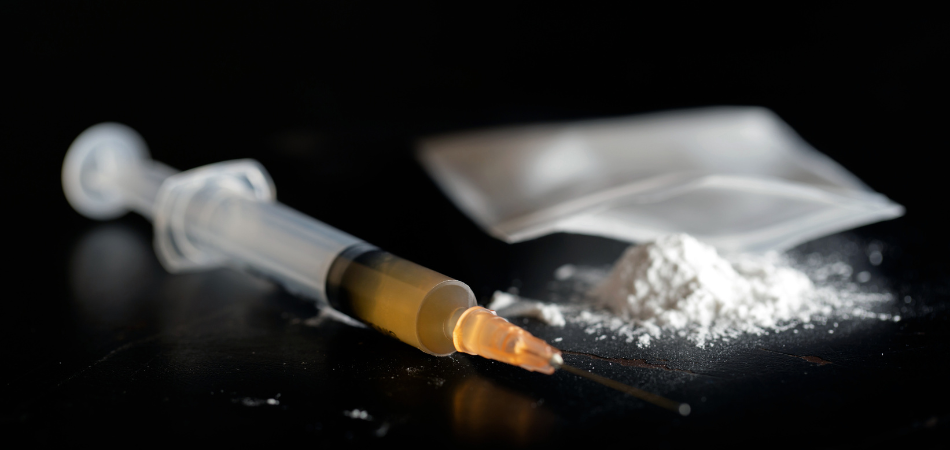
Written by:

Medically Reviewed by:
Last Updated:
August 13th, 2025
Ketamine has a half-life of around 2.5 hours, which means it takes 4–5 times that amount – around 10 hours – for the substance to pass out of the body completely. However, it is important to understand that tests can detect ketamine metabolites and other indications much longer after drug use.
This means that while the effects of ketamine are relatively short-lived, if you are tested for work or legal reasons, it is possible that the drug or its metabolites could still be present in your system days or even weeks after.
How long does ketamine stay in your system on average?
To understand how long ketamine can stay in your system, it’s important to understand ketamine’s metabolism. Once ingested, ketamine is metabolised by the liver into norketamine and dehydronorketamine. These molecules are then either excreted in the urine (around 90% of ketamine metabolites are passed in this way) or through the breath.
The amount of time that ketamine and its metabolites remain in your system can vary depending on several factors, including how much was taken, the potency of the dose and your body’s own metabolism; however, the average amount of time is around 10 hours.
What is ketamine’s half-life?
Half-life is a term that is often used to describe how long a drug remains in the body, but what does it mean? Half-life refers to the amount of time it takes for half of a dose of a drug to be eliminated from the body. Scientists and medical experts use half-life because it gives a general idea of how long the drug is active in your system.
In the case of ketamine, its half-life is around 2.5 hours, meaning that after 2.5 hours have passed, only half of the original dose will remain in your system. It usually takes longer for the second half of a drug dose to be eliminated, as the body must first process and metabolise the drug before it can be excreted. That is why the total amount of time for a drug to leave your system is not 2x the half-life but rather 4-5x the half-life, around 10 hours in the case of ketamine.
How long is ketamine detectable in tests?
This is where things can become a little confusing because even though ketamine is generally gone from the body after around 10 hours, it is still possible to detect ketamine and its metabolites in tests such as urine or blood tests far beyond this period. This is because these tests can be sensitive enough to pick up trace amounts of the drug, which may remain in your system for days or even weeks after drug use. Therefore, if you have been taking ketamine or have been exposed to it, it is possible that you could test positive for the drug in different tests up to several weeks later.
Here are the general detection periods for different types of ketamine tests:
- Saliva: 1 day
- Blood: 1-3 days
- Urine: Up to 2 weeks
- Hair: More than one month
It is important to note that these detection periods are estimates and can vary from person to person.
What factors affect how long ketamine stays in your system?
Several factors can influence how long ketamine remains in the body and how long it is detectable in tests. These include:
- The amount taken: The more ketamine taken, the longer it will take for it to be processed and eliminated from the body.
- Age: The metabolism of older people is usually slower than younger people. This means that drugs like ketamine can take longer to leave their system.
- Body weight: People who weigh less generally have a faster metabolism, meaning that ketamine will usually be eliminated from their system more quickly.
- Frequency of use: Regular users will have ketamine present in their systems for longer than someone who has only taken it once.
- Hydration levels: The body needs plenty of water to flush out the metabolites of drugs like ketamine, so the more hydrated you are, the quicker it will leave your system.
- Purity of ketamine: Impurities found in street ketamine can affect the metabolism and therefore, how long it takes to be eliminated from the body.
- General health status: People who have a lower level of general health or whose livers and kidneys are not functioning as well will take longer to metabolise drugs like ketamine.
- Route of administration: Ketamine can be administered in different ways, such as snorting or injecting with the amount of time it takes to leave your system varying depending on the method of administration.
When might you need to take a ketamine test?
Ketamine tests may be ordered if you are undergoing medical procedures, such as surgery. Ketamine is medically used as an anaesthetic in certain cases, so it is important for medical personnel to know what drugs you have taken recently and whether they might interfere with any medication you need.
A current/potential employer may also request that you take a ketamine test if they suspect drug use. Common examples include pre-employment checks and random drug tests. However, this can only be done with your consent and only in certain circumstances.
Ketamine tests may also be requested for legal reasons or in court cases, where it might be necessary to provide evidence of drug use or possession. For example, a ketamine test may be used as evidence in a case of suspected driving under the influence (DUI) or to assess whether a parent is fit to care for a child.
Are there any health uses for ketamine?
Although ketamine is mostly associated with recreational drug use, it can in fact be used medically, albeit under highly controlled and supervised conditions. It has been approved in some countries as a rapid-acting antidepressant and is currently being studied for the treatment of severe depression that does not respond to other treatments. It may also have some potential for treating alcohol and opioid addiction but is not currently being used for that purpose in the UK.
Getting help
Like all forms of addiction, a dependence on ketamine requires a comprehensive programme incorporating detox, rehab treatment and aftercare.
At Primrose Lodge, we provide inpatient ketamine detox and ketamine rehab to break both the physical and psychological aspects of dependency and give you the tools you need to manage stressful life events and prevent relapse. Our ketamine recovery programmes include a wide range of therapies all of which will help you to identify the reasons you became addicted to ketamine so that you can address them systematically.
Our aftercare programme involves ongoing weekly group therapy after you leave Primrose Lodge to give you the best chance of staying drug-free.
If you or a loved one is struggling with addiction to ketamine, then contact Primrose Lodge today. We can help you to take the first steps towards recovery and support you on your ongoing journey to a ketamine-free life.
Frequently asked questions
To find out how long other substances stay in your system:
If you are interested in knowing how long other substances stay in your system, head to these pages:
- Dangers and Effects of Mixing Amitriptyline and Alcohol
- Dangers and Effects of Mixing Cocaine and Alcohol
- Dangers and Effects of Mixing Codeine and Alcohol
- Dangers and Effects of Mixing Diazepam and Alcohol
- Dangers and Effects of Mixing Ibuprofen and Alcohol
- Dangers and Effects of Mixing Ketamine and Alcohol
- Dangers and Effects of Mixing Metronidazole and Alcohol
- Dangers and Effects of Mixing Mirtazapine and Alcohol
- Dangers and Effects of Mixing Naproxen and Alcohol
- Dangers and Effects of Mixing Nitrofurantoin (Macrobid) and Alcohol
- Dangers and Effects of Mixing Pregabalin and Alcohol
- Dangers and Effects of Mixing Ritalin and Alcohol
- Dangers and Effects of Mixing Tramadol and Alcohol




